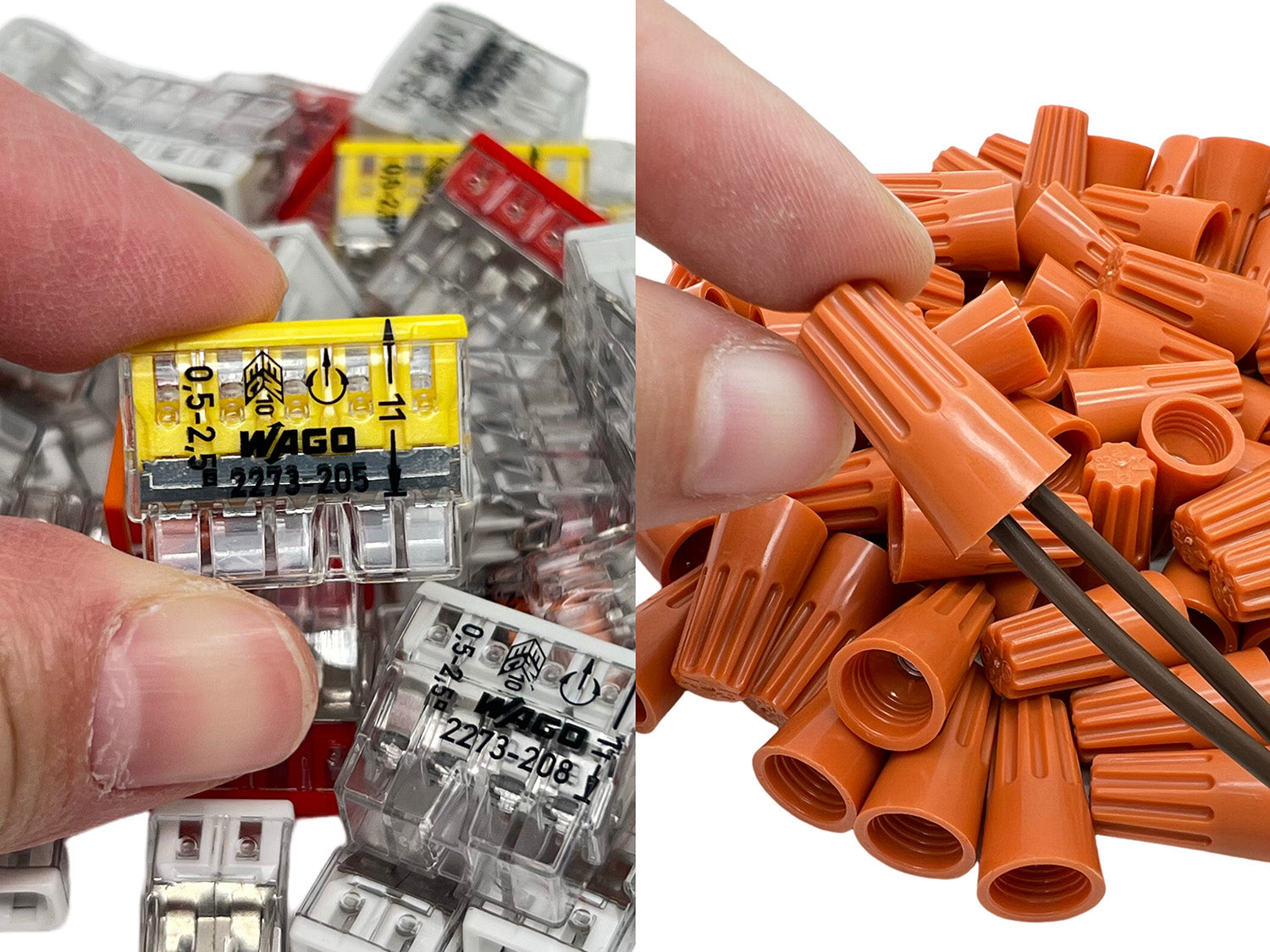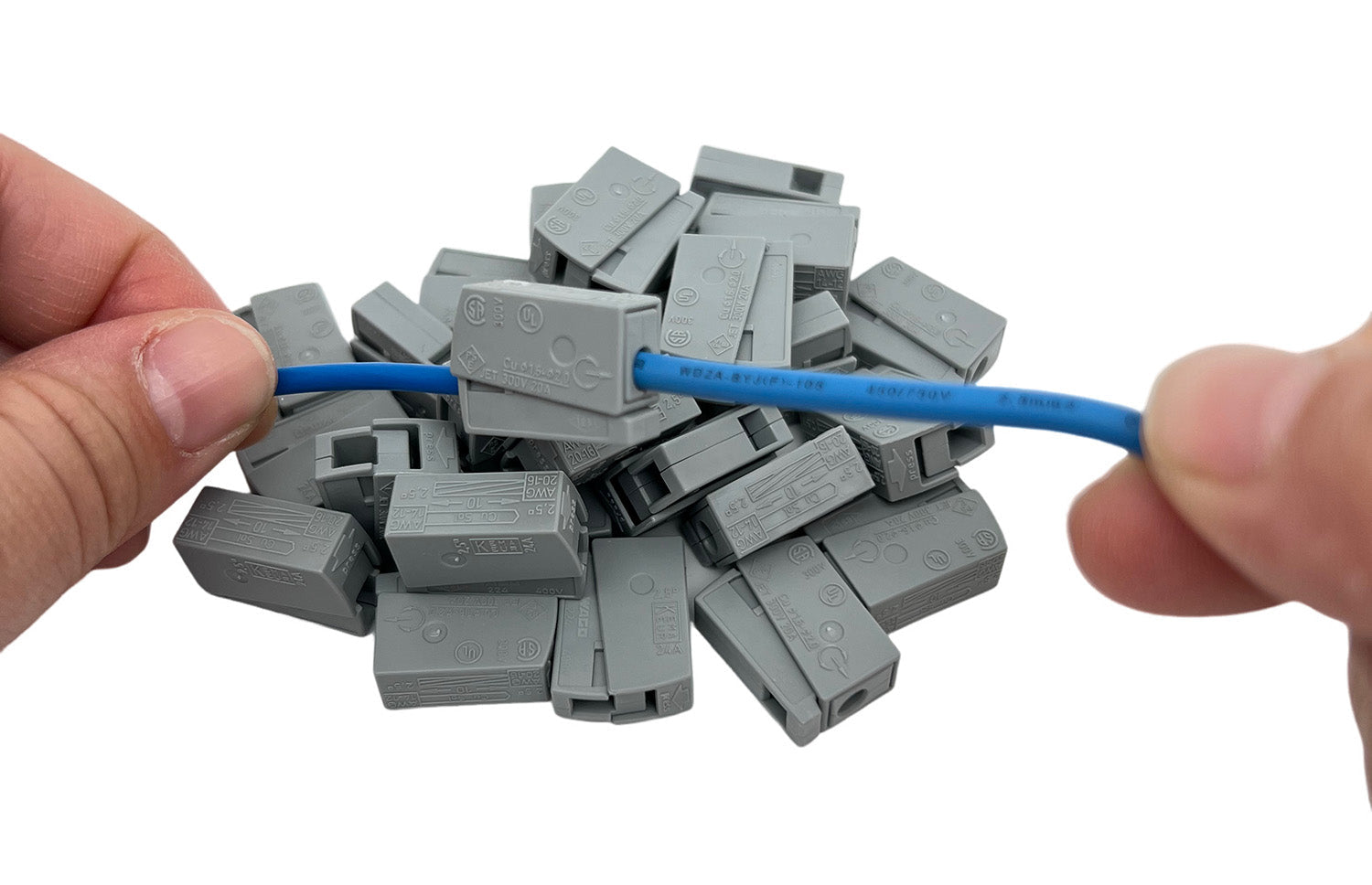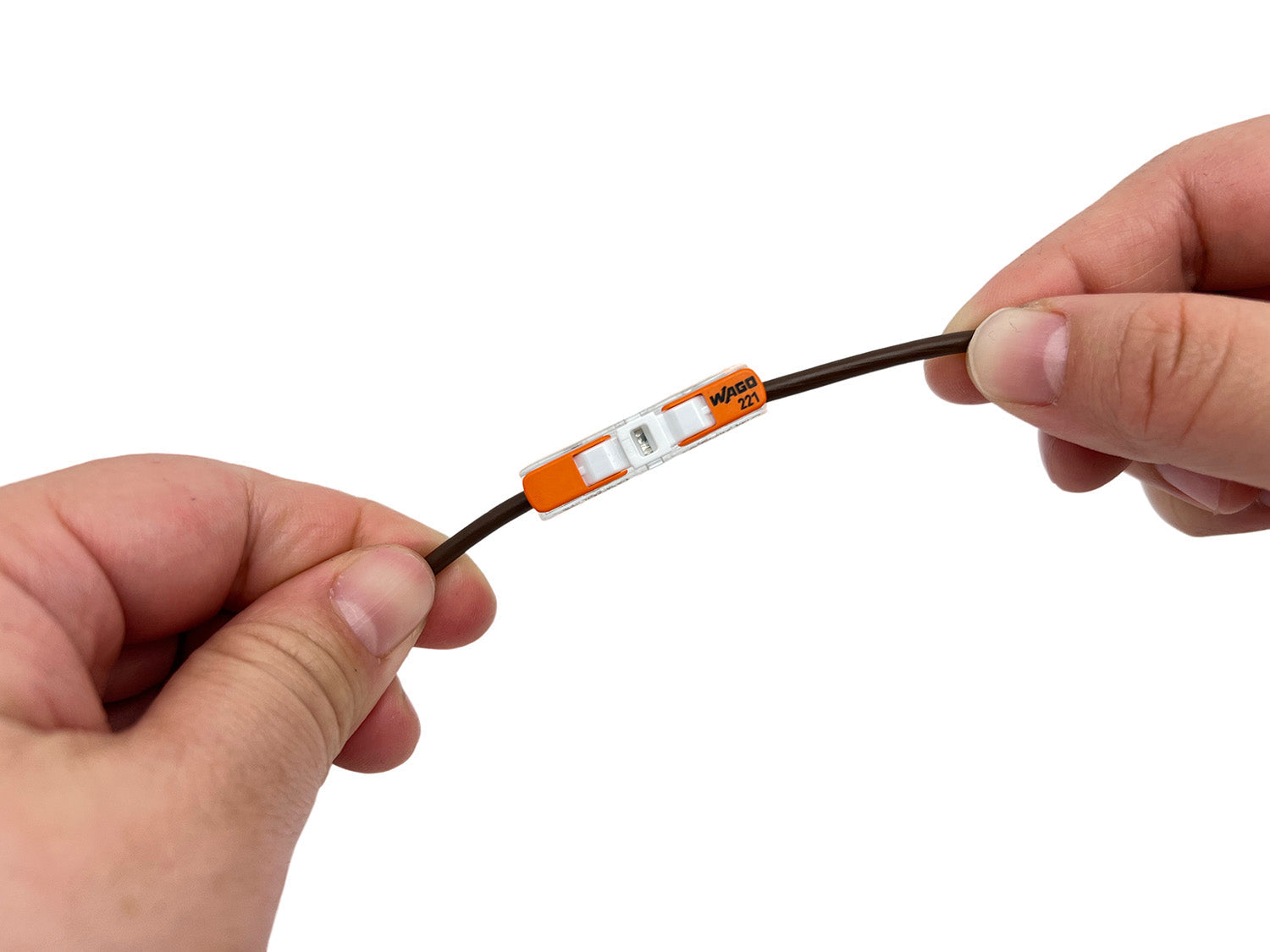WAGO vs Wire Nuts – Which is Your Choice ?
1. Introduction : What Are Wago Connectors and Wire Nuts?
When working with electrical wiring, two common tools are Wago connectors and wire nuts. Wago connectors are modern, tool-free connectors that allow you to easily join wires together. On the other hand, wire nuts are a more traditional option where you twist wires together and secure them with a plastic cap.
2. Ease of Use
Wago Connectors are incredibly easy to use. You simply push the wires into the connector, and they’re locked in place—no tools required. This makes them quick and clean to install.


Wire Nuts, however, require you to manually twist the wires together and then twist the nut to secure them. This process can be time-consuming and tricky, especially for beginners, and it may result in messy or poorly twisted connections.

3. Safety and Reliability
Wago Connectors are known for their secure, tight connections. Because they don’t require twisting, there’s little risk of improper installation, which makes them safer in the long run. They’re less likely to loosen over time, reducing the risk of overheating or electrical failure.
Wire Nuts, while reliable when done properly, can lead to problems if not twisted tightly enough. Over time, if the connection loosens, it can create an unsafe situation with poor contact, which may lead to overheating.
4. Durability and Longevity
Wago Connectors are built to last. They resist corrosion and wear and can often be reused without losing their effectiveness. Whether you're working on a small project or an industrial installation, Wago connectors maintain their performance over time.
Wire Nuts may wear out with repeated use. The plastic casing can crack or degrade, and the connections may weaken after multiple uses, making them less durable in the long run.
5. Compatibility
Wago Connectors are highly versatile. They work well with a variety of wire types, including solid, stranded, and flexible wires. You can use them for different applications, such as lighting circuits, outlets, or more complex setups in industrial environments.
Wire Nuts are more limited in scope. They generally work with single wire types and are best suited for simpler, residential electrical work. They also require more careful selection to match the correct wire sizes.
6. Cost-Effectiveness
Wago Connectors tend to have a higher upfront cost compared to wire nuts. However, their durability, reusability, and long-term reliability often make them more cost-effective over time, especially in professional environments.
Wire Nuts are very affordable, making them a go-to option for DIY projects and simple home repairs. However, they may need to be replaced more frequently, especially if connections aren’t done properly.
7. Applications and Use Cases
Wago Connectors are perfect for professional-grade installations, especially where ease of use and long-term reliability are needed. They’re also great in confined spaces where manual twisting may be difficult.
Wire Nuts are commonly used by homeowners and DIYers for small, straightforward electrical jobs. They’re ideal for quick fixes and less complex tasks.
8. Final Verdict: Which is Better?
For DIYers and simple residential work, wire nuts can be an inexpensive, quick solution. However, for professional electricians or more critical installations, Wago connectors are the safer, more reliable choice.
9. Conclusion
In the end, choosing between Wago connectors and wire nuts depends on the job at hand. If you want speed, reliability, and long-lasting performance, Wago connectors are your best bet. For simpler tasks on a budget, wire nuts still do the job.



